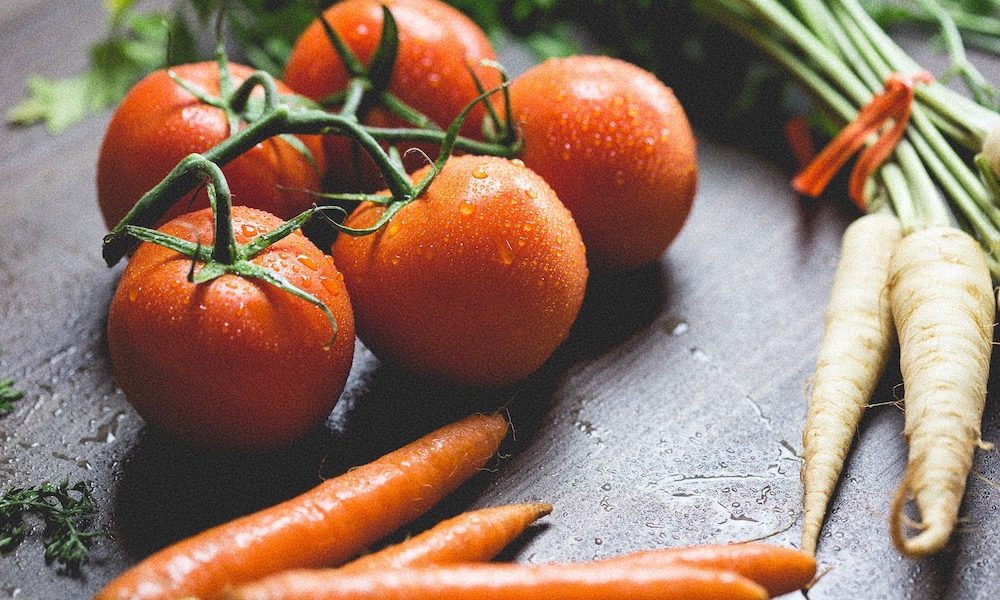The health halo that exists around organic foods can often mislead the general public from getting the fruits and veggies they’re already in need of. Let’s take a closer look at the facts.
BY: CARA HARBSTREET, MS, RD, LD
Every year, the Environmental Working Group (EWG) puts out this little list, you may have heard of it. The “Dirty Dozen” and “Clean Fifteen” are lists of the fruits and vegetables that are believed to contain the highest and lowest amounts of pesticide residues, respectively. Even the healthiest of fruits and veggies are coming under scrutiny; for example, kale seems to be taking a bit of a hit this year.
According to an EWG press release, “kale has higher pesticide residues than nearly all other produce found on supermarket shelves.”
However, without the full context, these statements can be misleading.
In fact, a peer reviewed study found that EWG’s suggested substitution of organic forms of produce for conventional forms did not result in any decrease in risk because residues on conventional produce are so minute, if present at all.
That means a woman could eat 18,615 servings of kale in a day and a child could eat 7,746 in a day and still not have any health effects from residues, according to an analysis by toxicologists with the University of California’s Personal Chemical Exposure Program.
That’s a lot of kale.
So what should we really do when it comes to organic fruits and veggies? When it comes to practical food choices and shopping habits, determining a food purchase can be boiled down to these 3 factors:
- Taste
- Cost
- Availability or accessibility
After that, the other factors vary depending on the source or who you’re talking to, include nutrition, freshness, labels, and brand. If you’re conscious about food waste, you may also consider not shopping for fruits and veggies that are a couple of days from disintegrating on the kitchen counter.
But if we’re being practical about it, the taste, cost, and availability of a food matter the most.
However, many people are now also starting to question if they actually need to purchase organic fruits and veggies. Here’s the thing: it gets a little more complicated than just saying, “This is right” or “This is wrong”.
And while organic produce isn’t always more expensive, it often does carry a higher price tag.
While there’s nothing inherently wrong with eating a certain way, it is important to remember that it’s OK to stick to what you know works for you. And if you’re budget conscious, you don’t need to feel badly about not being able to afford food that’s more expensive.
What’s “worse” is eating fewer fruits and veggies (or going without) because organic is out of the budget. In fact, according to peer reviewed studies, EWG’s list may be negatively impacting produce consumption.
Researchers at the Illinois Institute of Technology’s (IIT) Center for Nutrition Research found that EWG’s “dirty dozen” list messaging resulted in low income shoppers, reporting that they would be less likely to purchase any fruits and vegetables – organic or conventional.
Just keep in mind that for most of us, eating too many fruits and veggies isn’t the issue. According to the Centers for Disease Control and Prevention, only one in 10 Americans eat enough fruits and veggies each day.
If nutrition is the goal, it doesn’t matter if it comes from organic or conventional produce.
Food choices should not be based in fear, and you don’t have to do anything when it comes to how you eat. That’s sort of the beauty of personal choice and learning how to eat intuitively where, eventually, you can trust your food choices and your body again to eat without fear or anxiety.
Make a food choice that you feel good about without feeling superior to others or better than someone who makes a different choice. If it fits your budget, helps you cook and eat what you prefer, and can be easily found most of the time, it’s probably a sustainable, healthful habit that can be maintained indefinitely.
So if that means you’re opting for organic fruits and veggies, cool. But don’t feel like you have to purchase organic simply because of the Dirty Dozen/Clean Fifteen list or the label that appears on a food.
And remember, there’s a simple solution to all of this confusion:
Just wash the produce.
Adapted from the original article.
HEADER IMAGE: DAVID STEWART
Cara Harbstreet, MS, RD, LD is a Kansas City-based Registered Dietitian helping individuals jumpstart their journey to wellness. By breaking the cycle of dieting, Cara focuses on creating sustainable lifestyle changes for people who are motivated to reclaim their health. Connect with Cara over at Street Smart Nutrition.

